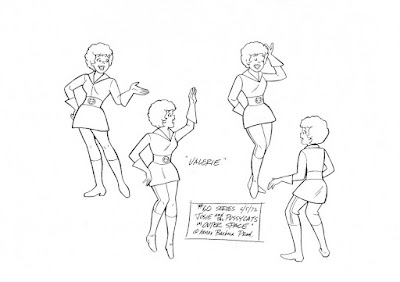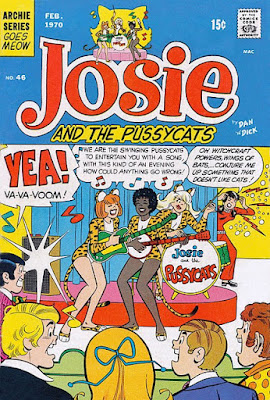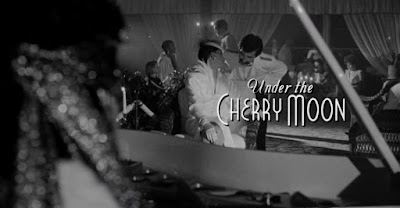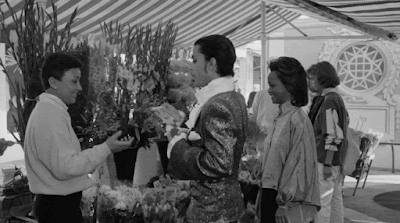The world was first introduced to the lamentable Tevin Campbell at the age of 12½, making his debut on Quincy Jones' single "Tomorrow (A Better You, Better Me)" which reached number one on the Billboard Hot R&B/Hip Hop Singles chart in June of 1990.
Campbell's first solo hit was "Round and Round", which charted at number 3 on the R&B chart in November 1990 and 12 on the Billboard Hot 100 in April 1991. "Round and Round" was produced by Prince and was featured in Prince's film Graffiti Bridge.
Campbell has released platinum-selling albums like his self-titled debut T.E.V.I.N. and the follow-up I'm Ready. His songs, "Tell Me What You Want Me to Do", "Can We Talk" and "I'm Ready" all reached the Top Ten on the Billboard Hot 100. He even appeared on television shows The Fresh Prince of Bel-Air and Moesha.
Not to mention, he voiced Powerline from the Disney film A Goofy Movie. He performed the songs "Stand Out" and "I 2 I" for the soundtrack. It's because of this role that Campbell has seemingly cemented his "legacy". However, this is NOT the case! Tevin Campbell may NOT have finished his career in the music industry in a traditional sense, but he created a legend through the anthropomorphic Michael Jackson remake in A Goofy Movie.
Despite, this his career is still dead as a doorknob. No question about it. A Goofy Movie only helped save his career by an inch. If that. So what killed Tevin's music career?
There are several factors that have been suggested as contributing to the decline of Tevin Campbell's career. Some of these include:
- 1. Voice changing: Campbell's voice went through a significant change during puberty, which meant that he could no longer hit the high notes that were his signature sound. This ultimately affected his popularity and appeal to audiences.
- 2. Changing musical landscape: In the late 1990s, the music industry underwent a shift towards more hip-hop and R&B styles, with artists like Usher and Trey Songz gaining popularity. Campbell's style of music, which was more influenced by traditional R&B and soul, became less in demand.
- 3. Lack of strong management: Campbell also faced management issues, including changing management teams and a lack of support and guidance, which impacted his career trajectory.
- 4. Personal struggles: Campbell has talked about dealing with personal challenges, including addiction and legal issues, which may have also affected his ability to focus on his career.
Maybe some of those factors as well include the fact that he was nominated five times for a Grammy and won NOT one! 😃 🤣 😂
Seriously though, it's pretty sad that he got into the business so young and eventually got overshadowed and surpassed by almost every male R&B act of the time. His 1996 album, Back to the World, straight out flopped.
His 1999 self-titled album did just the same. Deep down Campbell must have known it was over for him as far as music was concerned. So what does he do?
He goes an gets himself arrested in July of 1999, after trying to get some head from an undercover cop in children's Elementary School district. Pedophile perhaps? At least the cop was an adult. This happened during a sting operation in Van Nuys, California. Campbell was definitely in the wrong place at the wrong time. There had been numerous complaints from the public about cruising and solicitation. According to police reports, Campbell was also in possession of a small amount of marijuana at the time of his arrest.

In that moment, his "boy-next-door" image was squashed by the po-po who caught a pot head trying to get some oral. Coming from the entertainment business at such a young age, who knows what other drugs Campbell has done or what other bad things he's done that never made the news. These Hollywood guys and gals are pieces of crap. It's ridiculous and un-called for that some of the most important and successful people in this world carry on the way they do. Without expectations of consequences. They aren't just despicable. They are just horrible people. Tevin being no acception.
During 2000, Campbell stayed out of the public eye. In 2001, they released the compilation album, The Best of Tevin Campbell. Which they usually do at the end of someone's career 😉.
What Campbell did in the entertainment industry from 2002 to 2021? NOTHING! Yet, in 2022 he hops himself on a podcast to come out as gay to the world. Final nail in the coffin? ⚰️
Tevin Campbell's music career might be dead but homophobia certainly is not. There are homophobes out there just as ignorant as Campbell. Their hatred? Well intact.
Although, Campbell stated that he came out to his family in private during the early 2000s sometime after the arrest happened. For years, people have speculated with little to no proof. Maybe Campbell got as sick as he looks and decided to set the record straight for himself.
Yes, Campbell has continued to perform, indicating that while his mainstream popularity is completely gone, he still has a dedicated fan base despite not being Chris Brown or a rapper. That's the story! ✌️





.jpg)















